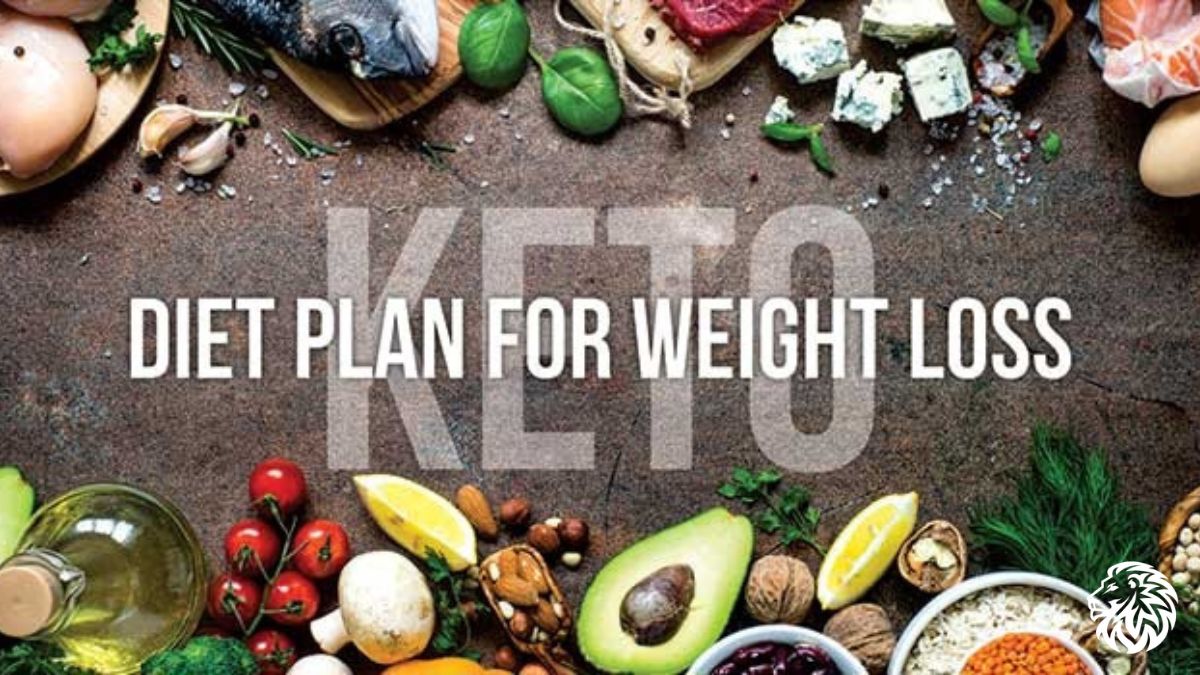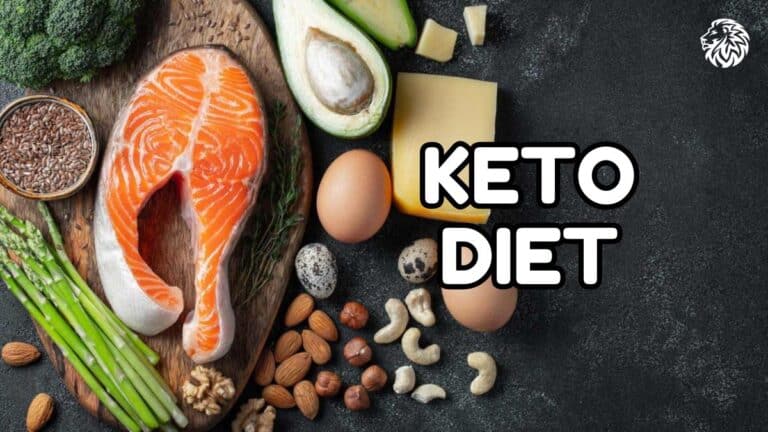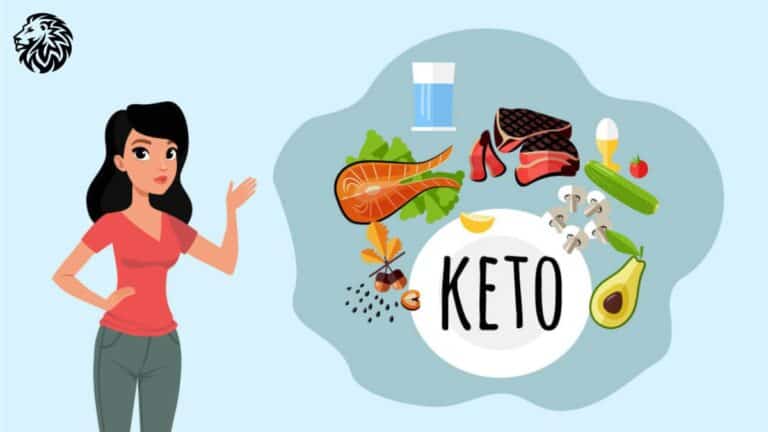The ketogenic diet (keto diet) has taken the world by storm in recent years. With its promise of weight loss and potential health benefits, this low-carb, high-fat approach to eating has gained significant popularity among individuals seeking to improve their health, shed excess weight, or manage metabolic diseases. But how exactly does the ketogenic diet work, and is it a sustainable solution for long-term health?
In this blog post, we will dive into the fundamental aspects of the ketogenic diet, its benefits, potential risks, and its overall impact on weight loss and metabolic health. Whether you’re considering adopting the keto diet or simply curious about how it works, this guide will provide you with a comprehensive understanding of this dietary approach.
What Is the Ketogenic Diet?
The ketogenic diet is a low-carb, high-fat eating plan that drastically reduces carbohydrate intake while increasing fat consumption. The goal of this diet is to shift the body’s primary energy source from carbohydrates to fats, forcing the body into a metabolic state known as ketosis.
In a typical diet, carbohydrates are broken down into glucose, which serves as the body’s main source of energy. However, when carb intake is significantly reduced, the body depletes its glycogen stores and begins to break down fats into molecules called ketones. These ketones become the new fuel for the body and brain, helping maintain energy levels without relying on glucose.
How Does Ketosis Work?
Ketosis is a metabolic process that occurs when the body switches to burning fat for fuel instead of carbohydrates. During this process, the liver converts fats into ketones, which are then used by the body for energy. Achieving ketosis requires a strict reduction of carbohydrate intake, typically below 50 grams per day, depending on individual factors such as activity level and body composition.
When ketosis is maintained, the body becomes highly efficient at burning fat, both from dietary sources and stored fat reserves. This shift can lead to significant weight loss, especially in individuals with obesity or metabolic disorders.

The Benefits of the Ketogenic Diet
The ketogenic diet offers a wide array of benefits, making it a popular choice for those looking to lose weight, improve metabolic health, and even manage certain medical conditions. Let’s explore these benefits in greater detail, diving deeper into how the keto diet can transform your health.
1. Weight Loss and Fat Burning
One of the most well-known and sought-after benefits of the ketogenic diet is its ability to promote weight loss, especially fat loss. The keto diet works by altering how your body sources energy. Instead of relying on glucose (sugar) from carbohydrates, it turns to fat stores, leading to the breakdown of fats into ketones. These ketones are used as fuel by your body and brain. As a result, people on keto tend to see a significant reduction in body fat, particularly in stubborn areas like the abdomen.
- Increased Fat Burning: The keto diet significantly increases the body’s ability to burn fat, not just from food, but also from stored body fat. This metabolic state of ketosis turns your body into a fat-burning machine.
- Appetite Control: One of the main reasons the keto diet is effective for weight loss is its ability to naturally suppress appetite. Ketones have been shown to reduce levels of ghrelin, a hormone responsible for stimulating hunger. By curbing cravings and keeping you fuller for longer, keto helps reduce overall calorie intake without the struggle of constant hunger.
- Improved Body Composition: Studies suggest that those on a ketogenic diet not only lose weight but also preserve muscle mass due to the moderate protein intake. This is especially important for maintaining metabolism and strength while shedding fat.
2. Better Blood Sugar Control and Insulin Sensitivity
The ketogenic diet can be a game-changer for individuals with insulin resistance, prediabetes, or type 2 diabetes. By reducing carbohydrate intake, the body’s demand for insulin (the hormone that regulates blood sugar levels) is drastically lowered. This can lead to improved blood sugar control and a decrease in the need for diabetes medications.
- Stabilizing Blood Sugar Levels: When carbohydrates are consumed, they are broken down into glucose, causing blood sugar levels to spike. In response, the pancreas releases insulin to regulate the glucose. On a keto diet, where carb intake is extremely low, blood sugar levels remain more stable, reducing the risk of blood sugar spikes and crashes.
- Enhanced Insulin Sensitivity: Research shows that the ketogenic diet improves insulin sensitivity. This means the body becomes more efficient at using insulin to process glucose, which is especially beneficial for those with type 2 diabetes or insulin resistance. In fact, some studies have shown that people with type 2 diabetes following a ketogenic diet were able to reduce or eliminate their need for insulin medication.
- Lower Risk of Developing Type 2 Diabetes: For individuals with prediabetes or those at risk for developing type 2 diabetes, adopting a ketogenic diet could help prevent the onset of the disease by improving insulin function and reducing blood sugar levels.
3. Heart Health Benefits
While the ketogenic diet focuses on high-fat foods, not all fats are created equal. The keto diet emphasizes the consumption of healthy fats, such as those found in avocados, nuts, seeds, and fatty fish, which can positively impact heart health.
- Improved Cholesterol Profile: One of the key heart health benefits of the ketogenic diet is its ability to improve cholesterol levels. Studies have shown that the diet can increase HDL (the “good” cholesterol) while reducing LDL (the “bad” cholesterol) and triglycerides. A favorable cholesterol profile is essential for lowering the risk of heart disease.
- Reduced Inflammation: Chronic inflammation is a major contributor to heart disease, and the ketogenic diet may help combat this. Research suggests that ketosis reduces markers of inflammation, which can improve cardiovascular health and reduce the risk of heart-related complications.
- Lower Blood Pressure: High blood pressure is another risk factor for heart disease. The ketogenic diet, by promoting fat loss and improving insulin sensitivity, may also help reduce blood pressure levels, further protecting heart health.
4. Potential Cancer-Fighting Properties
Although the ketogenic diet is primarily known for its metabolic and weight loss benefits, emerging research suggests that it may also have potential in fighting certain types of cancer. Cancer cells rely heavily on glucose for energy. By reducing carbohydrate intake and lowering blood sugar levels, the ketogenic diet may “starve” cancer cells while allowing healthy cells to thrive on ketones.
- Cancer Metabolism: Some studies have shown that the ketogenic diet can slow the progression of certain cancers by limiting the fuel source (glucose) that cancer cells need to grow. This makes the keto diet a potential complementary therapy for cancer treatment, especially when combined with conventional treatments like chemotherapy and radiation.
- Oxidative Stress in Cancer Cells: Research also indicates that the ketogenic diet increases oxidative stress in cancer cells, leading to their death while leaving healthy cells unharmed. While these findings are promising, more research is needed to fully understand the role of the ketogenic diet in cancer prevention and treatment.
5. Improved Cognitive Function and Neurological Health
The ketogenic diet was originally developed in the 1920s as a treatment for epilepsy, particularly in children who did not respond to medication. Since then, its benefits for brain health have been widely recognized, and studies suggest that ketosis may also help protect against neurodegenerative diseases.
- Seizure Reduction in Epilepsy: One of the most well-established benefits of the ketogenic diet is its ability to reduce seizures in individuals with epilepsy. Ketosis has been shown to decrease the frequency and severity of seizures, particularly in children with drug-resistant epilepsy.
- Potential Benefits for Alzheimer’s Disease and Parkinson’s Disease: The neuroprotective effects of ketones may extend to other brain conditions as well. Some research indicates that the ketogenic diet may improve symptoms of Alzheimer’s disease, Parkinson’s disease, and other cognitive impairments by providing an alternative fuel source for brain cells. Ketones can enhance mitochondrial function, which is crucial for brain health, and may help protect neurons from damage.
- Enhanced Mental Clarity and Focus: Many people report improved mental clarity, focus, and cognitive performance when in ketosis. This is likely due to the stable energy supply provided by ketones, which can help eliminate the mental fog often caused by blood sugar fluctuations.
6. Hormonal Balance and Polycystic Ovary Syndrome (PCOS)
Polycystic ovary syndrome (PCOS) is a hormonal disorder that can cause irregular menstrual cycles, infertility, weight gain, and other health issues. Insulin resistance is often a key factor in the development of PCOS, and the ketogenic diet’s ability to improve insulin sensitivity can help address some of the symptoms associated with this condition.
- Weight Loss and Hormonal Balance: For women with PCOS, weight loss can significantly improve symptoms. The ketogenic diet’s effectiveness in promoting fat loss, particularly around the abdominal area, can help restore hormonal balance and improve fertility.
- Reduced Androgen Levels: PCOS is often characterized by elevated androgen levels, which can lead to symptoms like acne, excess facial hair, and hair loss. The ketogenic diet has been shown to reduce androgen levels, leading to an improvement in these symptoms.
7. Reduced Inflammation
Chronic inflammation is at the root of many modern diseases, including heart disease, cancer, and autoimmune disorders. The ketogenic diet has been shown to reduce inflammation by decreasing the production of inflammatory molecules like cytokines. This anti-inflammatory effect may contribute to the diet’s ability to protect against various health conditions, including metabolic syndrome and cardiovascular disease.
The ketogenic diet’s benefits are extensive, ranging from weight loss and improved insulin sensitivity to heart health and cognitive function. While it may not be suitable for everyone, particularly those with certain medical conditions, it can offer significant advantages for people looking to lose weight, manage diabetes, improve brain health, or even reduce their risk of chronic diseases.
Before embarking on a ketogenic journey, it’s important to consult with a healthcare provider to ensure that the diet aligns with your individual health needs and goals. If followed correctly and with attention to nutrient-dense, healthy fats, the ketogenic diet can be a powerful tool for transforming your health and well-being.

Potential Risks and Drawbacks of the Ketogenic Diet
While the ketogenic diet offers numerous health benefits, it is not without its risks. Here are some potential drawbacks to consider before adopting this dietary approach:
1. Nutrient Deficiencies
The strict elimination of carbohydrate-rich foods, such as fruits, grains, and legumes, can result in deficiencies in essential nutrients like fiber, vitamins, and minerals. It’s crucial for individuals following a keto diet to prioritize nutrient-dense, low-carb vegetables and consider supplementation if needed.
2. Keto Flu
When transitioning into ketosis, many individuals experience symptoms known as the “keto flu.” These symptoms can include fatigue, headaches, nausea, irritability, and difficulty concentrating. The keto flu typically lasts a few days to a week and is a result of the body’s adjustment to using fat as its primary energy source.
3. Long-Term Sustainability
The ketogenic diet can be challenging to maintain in the long term due to its restrictive nature. Social situations, dining out, and food preferences may make it difficult to stick to the diet consistently. Additionally, some individuals may find it hard to maintain weight loss once they reintroduce carbohydrates into their diet.
4. Potential Health Risks
While short-term studies on the ketogenic diet show positive results, there is limited research on the long-term effects. Some concerns include the potential for kidney stones, liver issues, and an increased risk of nutrient imbalances. Individuals with certain medical conditions, such as pancreatitis or liver disease, should avoid the keto diet.
Is the Ketogenic Diet Right for You?
The ketogenic diet can be a powerful tool for weight loss and improving metabolic health, but it’s not suitable for everyone. It’s essential to consult with a healthcare professional before starting the diet, especially if you have underlying health conditions or are taking medication.
For those who thrive on low-carb, high-fat eating, the ketogenic diet can offer a range of benefits, from weight loss to better blood sugar control and improved brain function. However, it requires careful planning and a commitment to maintaining ketosis over time.
In conclusion, the ketogenic diet has the potential to transform the way your body burns energy, offering numerous health benefits along the way. Whether you’re looking to lose weight, manage diabetes, or improve your overall health, the ketogenic diet could be worth exploring under the guidance of a healthcare professional. As with any diet, finding what works best for your body and lifestyle is key to long-term success.
FAQs About the Keto Diet for Weight Loss
Is the keto diet safe for weight loss?
The keto diet is generally safe for weight loss, but it may not be appropriate for everyone. If you have any underlying health conditions, it’s important to speak with your doctor before starting the keto diet.
How much weight can you lose on the keto diet?
The amount of weight you can lose on the keto diet depends on a variety of factors. These factors include your starting weight, calorie intake, and activity level. However, many people experience rapid weight loss in the first few weeks of the diet.
How long should you follow the keto diet for weight loss?
The length of time you should follow the keto diet for weight loss depends on your goals and individual needs. Some people follow the keto diet for a few months, while others follow it for years.
Can you eat carbs on the keto diet?
Yes, you can eat carbohydrates in a keto diet, but only small amounts. Remembered the keto diet is a low-carb diet. So, it’s important to monitor your carb intake and ensure that it stays within the recommended range to maintain ketosis. Most people following the keto diet aim to consume fewer than 50 grams of carbohydrates per day.
Are there any side effects of the keto diet for weight loss?
Some people may experience side effects when starting the keto diet, including headaches, fatigue, and irritability. These side effects typically go away within a few days as the body adjusts to the new diet.
References
- Westman, E. C., Mavropoulos, J. C., Yancy, W. S., & Phinney, S. D. (2003). A review of low-carbohydrate ketogenic diets. Journal of Clinical Outcomes Management, 10(4), 1–12. https://www.ncbi.nlm.nih.gov/pmc/articles/PMC8153354/
- Harvard T.H. Chan School of Public Health. (n.d.). Ketogenic diet. The Nutrition Source. https://nutritionsource.hsph.harvard.edu/healthy-weight/diet-reviews/ketogenic-diet/
- Cleveland Clinic. (2022, August 31). Ketosis: Definition, keto diet, symptoms, and treatment. https://my.clevelandclinic.org/health/articles/24003-ketosis
- Paoli, A., Rubini, A., Volek, J. S., & Grimaldi, K. A. (2013). Beyond weight loss: A review of the therapeutic uses of very-low-carbohydrate (ketogenic) diets. European Journal of Clinical Nutrition, 67(8), 789–796. https://www.ncbi.nlm.nih.gov/books/NBK499830/
- Bueno, N. B., de Melo, I. S. V., de Oliveira, S. L., & Ataide, T. D. (2013). Very-low-carbohydrate ketogenic diet v. low-fat diet for long-term weight loss: A meta-analysis of randomised controlled trials. British Journal of Nutrition, 110(7), 1178–1187. https://pubmed.ncbi.nlm.nih.gov/23651522/
- Mansoor, N., Vinknes, K. J., Veierød, M. B., & Retterstøl, K. (2016). Effects of low-carbohydrate diets versus low-fat diets on metabolic risk factors: A meta-analysis of randomized controlled trials. PLOS ONE, 11(1), e0147327. https://pubmed.ncbi.nlm.nih.gov/26768850/
- Rhyu, H. S., & Cho, S. Y. (2014). The effect of weight loss by ketogenic diet on the body composition, performance-related physical fitness factors, and cytokines of Taekwondo athletes. Journal of Exercise Rehabilitation, 10(5), 326–331. https://www.ncbi.nlm.nih.gov/pmc/articles/PMC5842847/
- Kossoff, E. H., & Wang, H. S. (2013). Dietary therapies for epilepsy: An overview of the ketogenic diet. Epilepsia, 54(S2), 87–91. https://www.ncbi.nlm.nih.gov/pmc/articles/PMC5452247/
- Parry, P., & Angus, D. (2019). Ketogenic diets and chronic disease prevention: A systematic review. Current Opinion in Clinical Nutrition and Metabolic Care, 22(4), 340–346. https://pubmed.ncbi.nlm.nih.gov/31405021/







